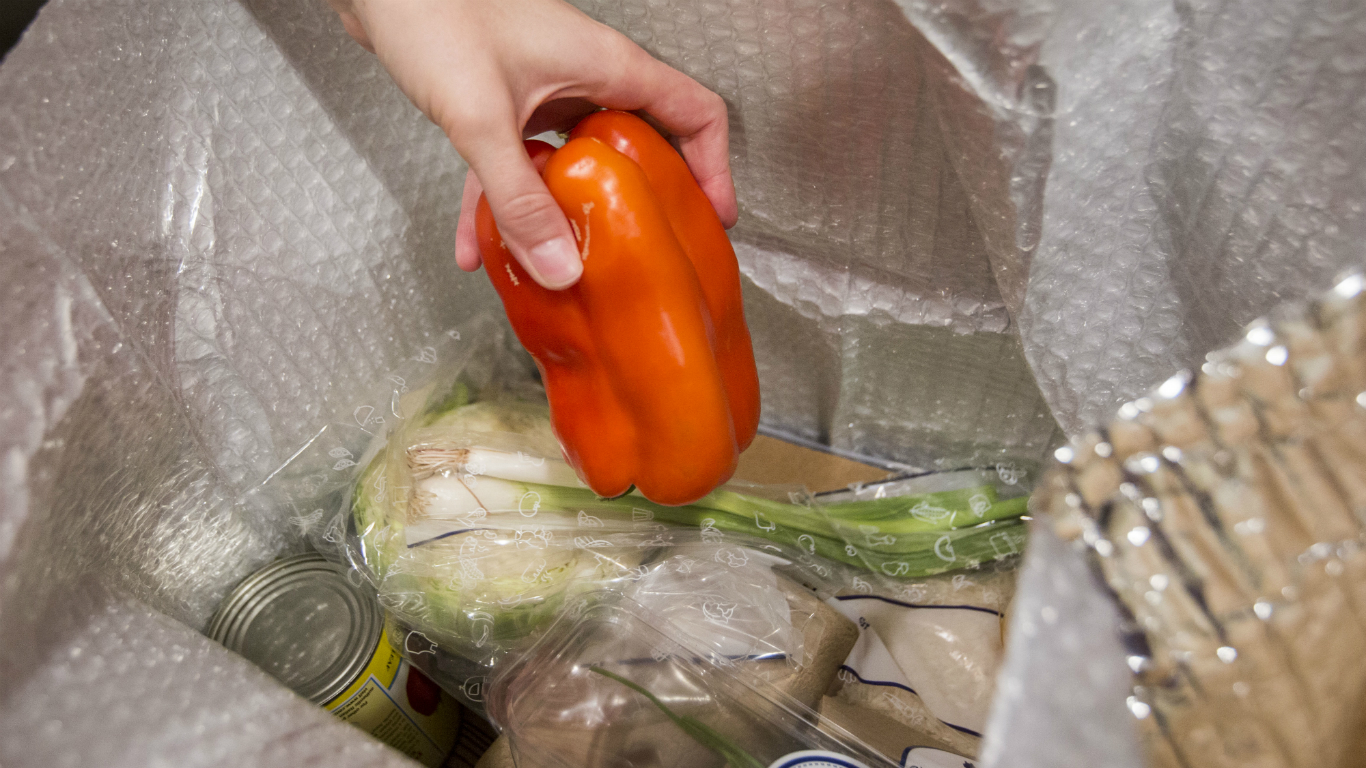Services
Meal Kits Are Better for the Environment Than Grocery Store Meals, Study Says

Published:
Last Updated:

Meal kits are a growing phenomenon. The kits supply everything the cook needs, from recipes (often from noted chefs) to the exact ingredients, in appropriate quantities, needed to prepare them. Consumers like them for an obvious reason: They take much of the work and worry out of the meal-making process.
The kits, from such enterprises as Blue Apron, Homemade, and Plated, were originally home-delivered but are now increasingly sold in supermarkets, which is part of the reason that they’re a growing phenomenon. The market research company Packaged Facts projects that sales of the kits will see an annual 12.3% compound growth over the next five years, evolving into a $5.5 billion business.
Let’s face it, though. With Earth Day — the world’s largest environmental movement — still visible in the rear-view mirror, subscribing to a meal-kit program (or picking up kits at the store) probably isn’t the first thing you’d think of if you were looking for ways to make your life more environmentally friendly.
That might be your mistake. According to a study just published in the journal Resources, Conservation and Recycling, buying meal kits instead of shopping for individual items at the supermarket might well be the better move for the environment.
Meal kits, it turns out, produce lower greenhouse gas emissions than grocery store meals, and because they’re pre-portioned, their use results in less food waste. The impact of meal-kit packaging on the environment may be higher than that for grocery store meals, but because kits are usually home-delivered by common carriers along with mail or other goods, they generally account for lower last-mile transportation emissions.
Environmental scientist Shelie Miller of the University of Michigan, who led the study, told NPR that, while people worry about plastics and packaging in meal kits, they’re not the full story.
There are many genius inventions that help us stop using so much plastic, and meal kits don’t have to be among them. “Yes, plastic is bad…,” Miller said, “[but] to understand the actual environmental impacts [of food production] and how to reduce them, we need to look at the whole system.”
In terms of what is best for the environment, she said, “We really want to have people think beyond just…their automatic gut reaction.”
Thank you for reading! Have some feedback for us?
Contact the 24/7 Wall St. editorial team.